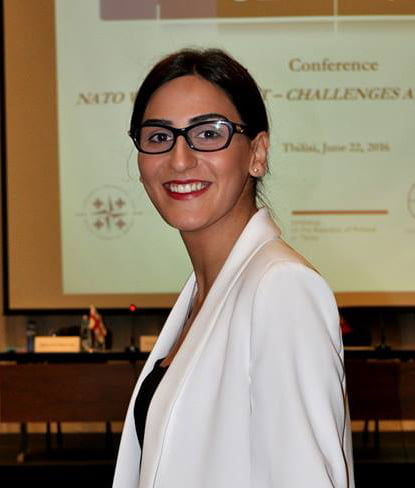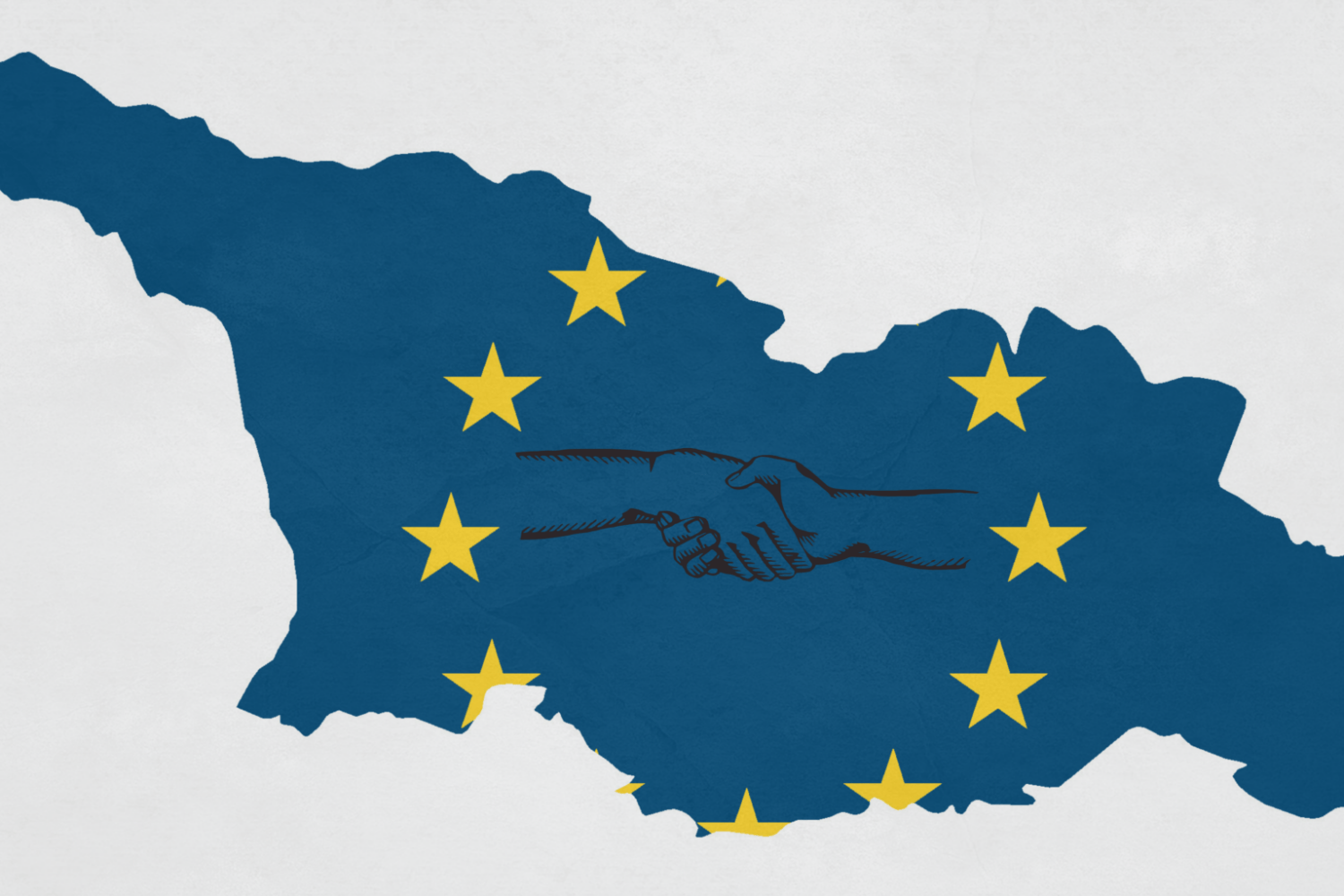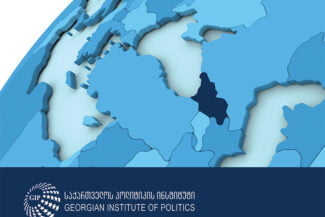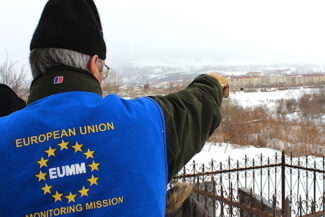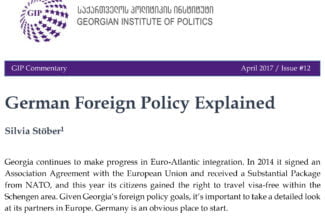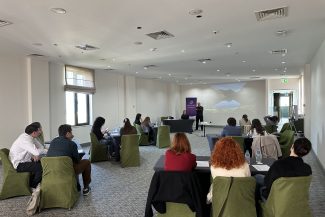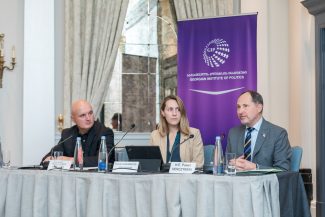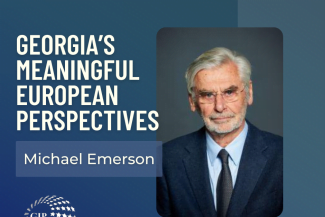The Georgian institute of politics has joined the statement by Open Society Georgia Foundation – “The Next 10 Steps on the Road to EU Membership”.
Civil Society Initiative
Georgia’s unwavering will to join the European Union is evidenced by an overwhelming level of support from the Georgian population and enshrined in the Constitution of Georgia. In view of this, on March 3, 2022, the Georgian government submitted its application for membership in the European Union. On March 10, 2022, at a summit of European Union leaders in France, the European Commission was asked to prepare an assessment of Georgia’s application, which will determine the country’s eligibility for candidate status. We believe that deepening cooperation with the European Union and commencing the process of accession will create preconditions for a stronger democracy, greater human rights protections and social benefits, and increased security for Georgia. The ongoing war in Ukraine has revealed the necessity of the Europeanization process, not only for Georgia’s political, legal, and social development but also in terms of the security of our country.
The dynamic development of Georgia-EU relations should become a precondition for consolidation and the end of polarization between political actors. We, the signatories, express our readiness to be actively involved in this process, and we propose that the Georgian government take the following steps:
______________________________________________
- Develop a national strategy for Georgia’s accession to the European Union and create an effective monitoring mechanism that will ensure the involvement of civil society.
- Implement the democratic reforms envisaged by the agreement “A Way Ahead for Georgia”[1] that was signed on April 19, 2021.
- Strengthen diplomatic efforts to ensure the timely adoption of the new Georgia-EU Association Agenda[2] with EU Member States and begin its effective implementation.
- Make the necessary diplomatic efforts to expedite the adoption of the European Commission Candidate Status Assessment Questionnaire;[3]
- Mobilize the relevant human, financial, and technical resources (including the establishment of a relevant agency and/or inter-agency working group) to facilitate the timely and comprehensive completion and submission of the Candidate Status Assessment Questionnaire.
- Amend the Statute of the EU Integration Commission of Georgia[4] to increase the intensity and efficiency of its work (including the active involvement of working groups in the process of preparing answers to the questionnaire).
- Make the process transparent and inclusive. Establish a National Council for Accession to the European Union, which is composed of experts in the field and has the status of an advisory body, to facilitate the coordination and monitoring of Georgia’s accession process.
- Consider appointing members of the opposition as the chairpersons of the following committees in the Parliament of Georgia: European Integration, Human Rights and Civil Integration, Legal Issues, and Foreign Relations. Further, consider appointing members of the opposition to positions in the EU-Georgia Association Parliamentary Committee. This will increase parliamentary oversight of Georgia’s EU accession process.
- In accordance with the Petra Fortress declaration[5] (signed by the Association Trio: Moldova, Georgia, and Ukraine), take effective steps to strengthen the format of cooperation between the Trio, normalize relations with Ukraine, and establish a joint summit between the Trio and the European Union.
- Ensure the management of expectations related to Georgia’s EU accession process and maintain relevant internal and external communication.
Signatory organizations:
- Open Society Foundation
- Georgia’s Reforms Associates (GRASS)
- Europe-Georgia Institute
- International Society for Fair Elections and Democracy (ISFED)
- Transparency International Georgia
- Eastern European Centre for Multiparty Democracy (EECMD)
- Rights Georgia
- Georgian Institute for Strategic Studies (GISS)
- Media Development Foundation (MDF)
- World Experience for Georgia (WEG)
- Caucasus Institute for Peace, Democracy and Development (CIPDD)
- Rondeli Foundation
- Georgian Democracy Initiative (GDI)
- Democracy Research Institute (DRI)
- Human Rights Center (HRC)
- Sapari
- Georgian Center for Psychosocial and Medical Rehabilitation of Torture Victims (GCRT)
- Human Rights House Tbilisi (HRHT)
- Economic Policy Research Centre (EPRC)
- Institute for Development of Freedom of Information (IDFI)
- Social Justice Center
- Liberal Academy Tbilisi (LAT)
- Index of Democracy – Georgia
- Governance Monitoring Center
- Civil movement Shame
- Atlantic Council of Georgia
- Georgian Institute of Politics (GIP)
- Georgian Young Lawyers Association (GYLA)
- Civil idea
- Green Alternative
- Media Institute
[1] This agreement is also informally known as the “Charles Michel Agreement”. See the text of the agreement here.
[2] The Association Agenda is the main tool for the implementation of the Georgia-EU Association Agreement, which includes the key priorities of this agreement. The previous agenda expired in 2020 and the new one has yet to be approved.
[3] This questionnaire is the official document of the European Commission, which is used by the EU to assess whether the applicant country will be granted candidate status.
[4] See the Statute of the European Union Integration Commission of Georgia here.


